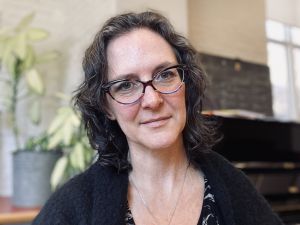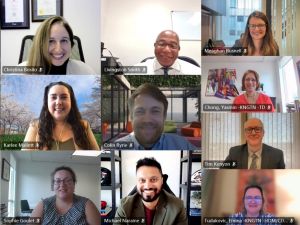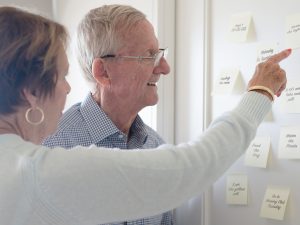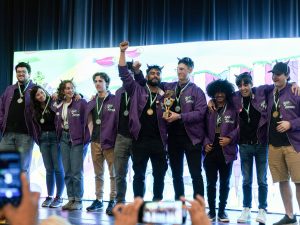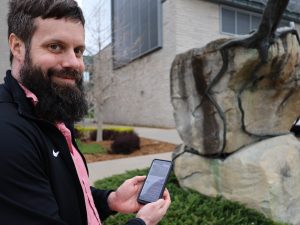Even in high school, Makenna Williams knew she wanted to study hearing in university.
Faced with hearing loss herself and hoping to someday make a difference in the field, the Uxbridge, Ont., resident was drawn to Brock University’s Hearing Sciences program — a unique offering in the province.
Now in her third year, Williams plans to continue to a master’s program after she graduates in hopes of becoming a licensed audiologist.
With a high prevalence of hearing loss among Canadians, Brock’s graduates are “poised to make a real difference in people’s lives with the knowledge they’re acquiring in Hearing Sciences,” says Lynn Dempsey, Associate Professor and Chair of the Department of Applied Linguistics.
“There is a real need for professionals who understand hearing health — the impact of hearing loss, how to assess it, hearing technology like hearing aids and cochlear implants, and how to help people adapt to a loss,” Dempsey says.
That growing need will be highlighted on Wednesday, March 3, when countries around the globe recognize World Hearing Day, an annual campaign by the World Health Organization.
But the impact Brock students can have does not end with hearing health. Dempsey notes that students who take advantage of course offerings in American Sign Language (ASL) can also make a difference.
Carolyn Finney, who has been an ASL instructor for the department for the past 20 years, agrees, noting the global pandemic has drawn the need for more professionals in the Hearing Sciences field into sharp relief.
“I would say the hardest thing for me as a deaf person during this pandemic is that it got incredibly harder to communicate with hearing people,” says Finney. “With face masks being used, it is a lot harder for deaf people to be able to lip read, and it is much more difficult to book sign language interpreters for important appointments.”
Finney also says teaching ASL online has presented several challenges that she and her students have had to overcome.
“ASL uses hand gestures and body movements that are often difficult to completely see online,” says Finney. “I noticed the ASL students really would prefer us to be in class learning. It makes it easier for me to assist the students in person.”
Both Finney and Williams say that World Hearing Day is an opportunity for people to learn more about what it means to be deaf or hearing impaired.
“Hopefully, it will bring awareness to the true difficulties that we as a deaf culture have within the hearing world,” says Finney. “The hearing world often doesn’t consider deafness as a disability. However, when we go for job interviews, deaf people very often get turned down due to ‘safety concerns.’ We often don’t even get a chance to prove that we can do the job just as well as anyone else.”
Williams hopes to encourage students with a hearing impairment not to be deterred from taking their educational journey.
“Any individual who is deaf or has hearing loss should not let their disability influence their decision to attend university,” she says. “I have a bilateral moderate to severe sensorineural hearing loss, and with the accommodations provided I have found the program to be fulfilling and manageable.”



